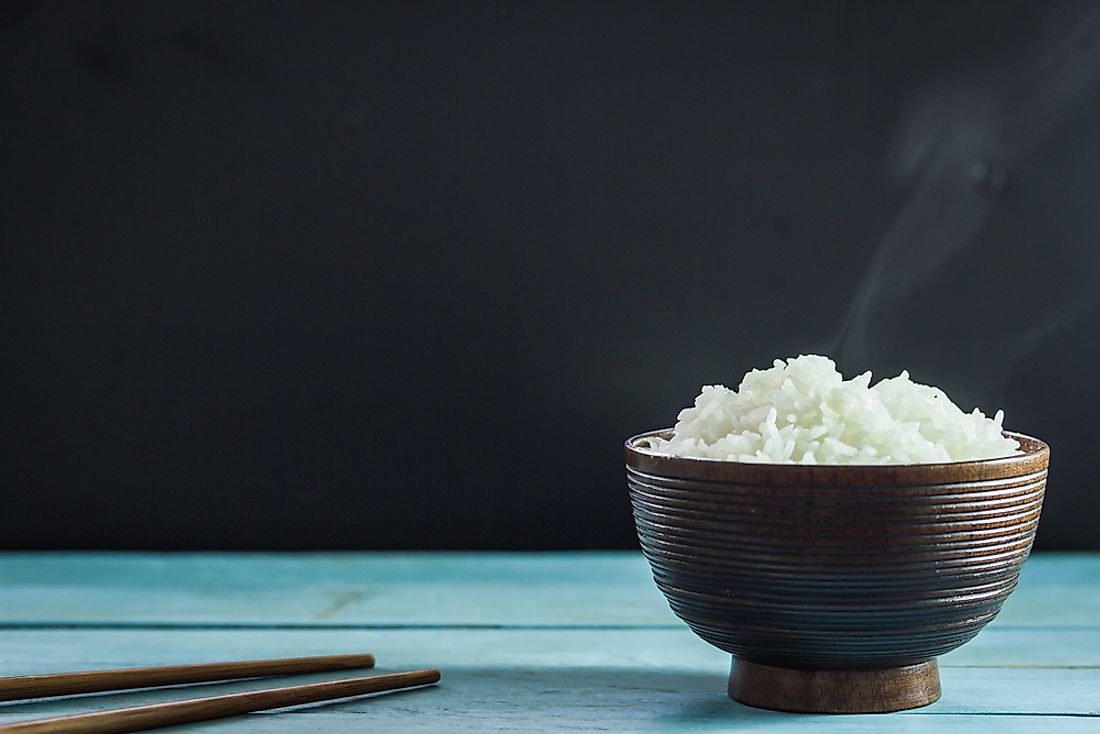Top 10 Rice Consuming Countries

Rice is a staple food all over the world regardless of location and economic position. Developed countries and developing countries alike produce and consume rice. The leading food crops are rice, wheat, and corn. However, rice is by far the most important especially in counties of low to middle income. It is as a staple for close to half of the world’s population and therefore production remains robust alongside economic growth and population with Asia being the largest consumer, and rice accounts for up to 50% of daily caloric supply. These are some of the largest consumers of rice globally.
Top Consuming Countries of Rice
China
China is the world's biggest consumer and producer of rice at the same time. It has also been one of the fastest growing economies in the world over recent years with agriculture being one of the most important pillars of this economy. In effect, rice consumption is at 142,700 metric tons annually which equates to close to 30% of global rice production. Approximately 65% of the Chinese population consumes rice as a staple food, and this has been promoted by the extensive use of hybrids and suitable cultivation conditions. China frequently exports and imports rice, unlike previous years however it is currently a net exporter.
India
India has also experienced exponential growth just like China. The same can be said for rice consumption as India comes second at 97,350 metric tons in total consumption. India produces other grains, which include wheat, sorghum, and corn. More than half of the Indian population relies on rice as a staple food, and the government plays a pivotal role in rice production for consumption through procurement and initiating distribution programs. Farmers are supported in the different stages of production mostly through subsidies and production, which include fertilizers, seeds, electricity, and machinery.
Indonesia
The third largest consumer of rice in the world is Indonesia which consumes 37,400 metric tons. Approximately 77% of the farmers in Indonesia grow rice, and the country is also the fourth most populous in the world where rice is its most important food crop. The main growing areas are Java and Sumatra where cultivation is highly concentrated; 60% of the total production is harvested in Java alone. Recently import of rice has declined; however, it is expected to increase in coming years because the population continues to increase. The International Rice Research Institute estimates that in the next 25 years or so Indonesia will require at least 38% more rice than it is currently producing. While importation is an option, over-reliance on this as a way to meet the national deficit is not advisable, and the Indonesian government is developing mechanisms of increasing domestic production to increase self-reliance.
Significance of Rice
Paddy farming in Southeast and East Asian culture is thousands of years old. This method of rice farming uses partially flooded conditions built on steep hillsides adjacent to rivers or marshland. Rice is essentially the most important food crop with a key significance in the developing world most notably Asia with other countries including Bangladesh, Vietnam, and the Philippines where rice availability is equated with food security and is even associated with political stability. This effectively means production should continue to increase to cater for population increase both now and in the future.
Top 10 Rice Consuming Countries
| Rank | Country | Rice consumption (in 1000 metric tons) |
|---|---|---|
| 1 | China | 142,700 |
| 2 | India | 97,350 |
| 3 | Indonesia | 37,400 |
| 4 | Bangladesh | 35,200 |
| 5 | Vietnam | 22,100 |
| 6 | Philippines | 13,000 |
| 7 | Thailand | 11,170 |
| 8 | Burma | 9,900 |
| 9 | Japan | 8,450 |
| 10 | Brazil | 8,100 |











